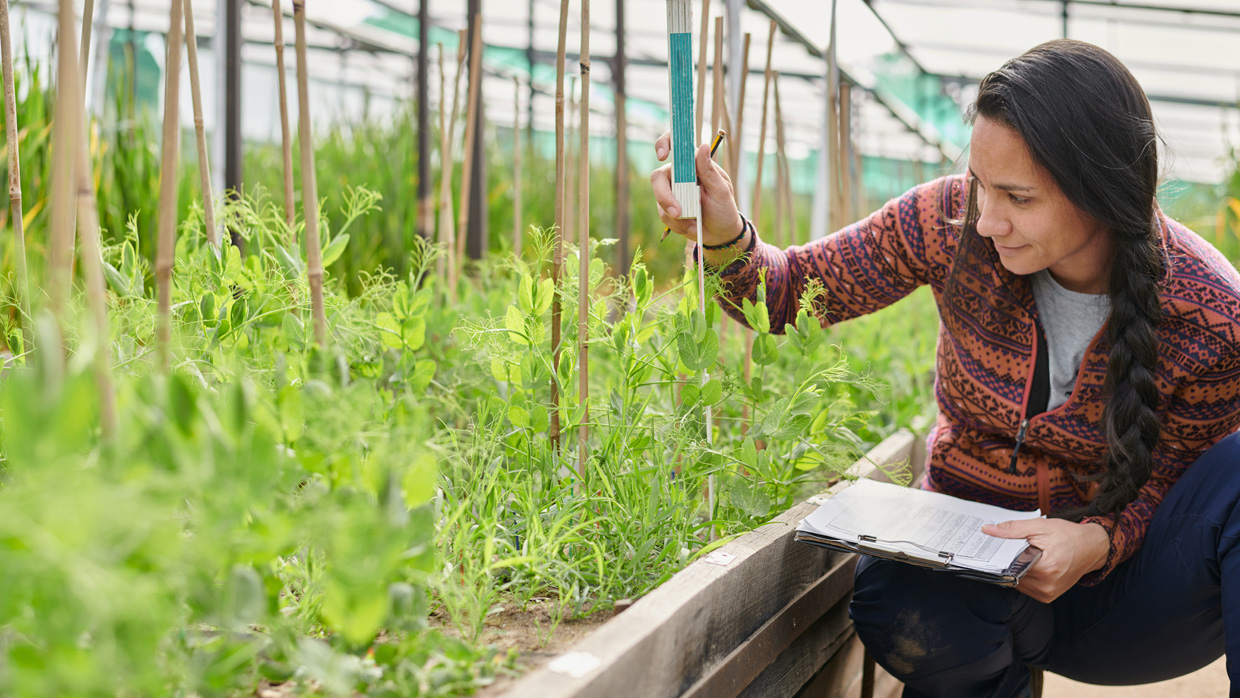Food Service Providers: Actors Driving Change in Sustainable Food

In the global discourse on sustainable food, farmers and citizens often take the spotlight as the primary actors driving change. However, as stakeholders deeply embedded in the daily fabric of society, food service providers and the large-scale catering industry hold a major influence that should not be underestimated. It's therefore crucial to recognize the pivotal role we play in advancing sustainability within the agri-food industry.
While the recent Canadian Sustainable Food Barometer indicates that farmers are perceived as the primary drivers of sustainable food initiatives, with 55% of Canadians recognizing their importance, the actors within the catering industry lag, with only 9% acknowledging their contribution. Despite this discrepancy, our impact cannot be overlooked.
Our Role in the Industry
As providers of meals across various sectors including schools, universities, offices, remote camps, hospitals and senior residences, amongst others, we have a unique position to catalyze change. Our purchasing power, coupled with our omnipresence in daily life, positions us as key players in shaping the trajectory toward sustainable food practices. We have the power to shape consumer behaviour and preferences.
As Davide Del Brocco, Sodexo Canada’s Senior Sustainability Manager puts it, " The purchasing power of food service providers is so large, it can fluctuate demands. So, when sustainable and low carbon ingredient purchasing direction on our end is growing, then that food category availability becomes competitive.”
For instance, when 38% of the spend share from a food service provider is plant-based, it could lead to a higher demand for these types of products in the market.
An increase in demand can have several effects. First, it may lead to greater competition among suppliers to meet the needs of food service providers, potentially driving down prices or incentivizing suppliers to improve the quality of their products. Additionally, suppliers may adjust their production practices to align with the requirements of food service providers, such as implementing more sustainable farming methods or sourcing from local producers.
So, our commitments must be rooted in an understanding of the complex network that supports the food industry. We recognize that sustainable practices require concerted efforts and informed decisions at every stage of the supply chain. From sourcing ingredients to managing waste, every aspect of our operations presents an opportunity to make a positive impact on the environment and the communities we serve.
Leading the Way
As leaders in the food service industry, we can positively influence the food choices of the millions of consumers we serve daily toward more balanced and sustainable food practices. And we must do so by collaborating with our clients and suppliers to achieve common sustainability goals.
At a global level, the Barometer findings reveal three main expectations from the public towards major players in the food industry:
- Reducing food waste
- Strengthening the supply chain with sustainable agricultural practices
- Promoting local food
Interestingly, educating and mobilizing consumers ranks fifth, highlighting the need for industry-led initiatives.
So, how do we do it?
- By reducing food and material waste. Sodexo’ Canada’s WasteWatch powered by Leanpath program helped us reduce food waste by almost 50%.
- By greening the supply chain with sustainable and local sourcing. In 2023, we increased our responsible sourcing spend for local and small and medium-sized enterprises by $8.4 million.
- By offering plant-based recipes in every industry we serve. Sodexo’s global objective is for one-third of recipes on the menus to be plant-based.
- By measuring and reporting on sustainability data to continuously improve our sustainability roadmaps.
A Call to Action
We must commit to reducing our environmental impact through offering more sustainable food choices, and sourcing, preparing and serving them in more sustainable ways. By offering consumers a choice, the point is to make it easier and more desirable to make the shift.
By leveraging our knowledge and expertise, we have the power to drive meaningful change within the food industry. Through continuous learning and adaptation, we can stay at the forefront of sustainable practices, setting new standards and inspiring others to follow suit.
In Canada, where the call for sustainable practices is growing louder, food service providers must step into the spotlight and embrace our role as catalysts for change. By championing sustainability initiatives, we not only align with the values of our clients and consumers but also pave the way for a more resilient and environmentally conscious food ecosystem.
For more insights on Canadian attitudes toward sustainable food choices, download the Sustainable Food Barometer.